Politics
Trump says Putin ready to make deal on Ukraine, US hopes to include Zelensky
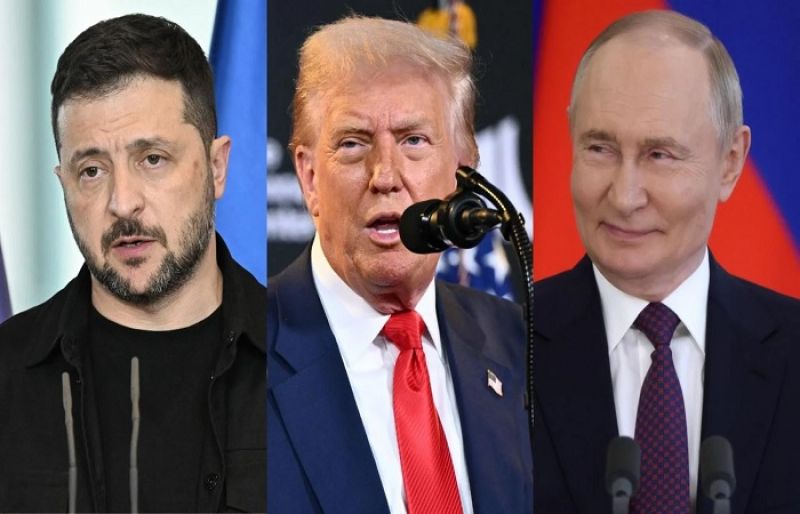

Trump is scheduled to meet with Putin in Alaska tomorrow.
The US president said he is unsure whether an immediate ceasefire can be achieved, but expressed interest in brokering a peace agreement.
“I believe now, he’s convinced that he’s going to make a deal. He’s going to make a deal. I think he’s going to, and we’re going to find out,” Trump said in an interview on Fox News Radio’s ‘The Brian Kilmeade Show’.
Trump also mentioned during the Fox interview that he has three locations in mind for a follow-up meeting with Putin and Ukraine’s President Volodymyr Zelensky, though he noted that a second meeting is not guaranteed.
He said staying in Alaska for a three-way summit would be the easiest scenario.
“Depending on what happens with my meeting, I’m going to be calling up President Zelensky, and let’s get him over to wherever we’re going to meet,” Trump said.
He said a second meeting, featuring Trump, Putin and Zelensky, would likely dig deeper into boundary issues. Zelensky has been adamant about not ceding territory that Russian forces occupy.
“The second meeting is going to be very, very important, because that’s going to be a meeting where they make a deal. And I don’t want to use the word ‘divvy things up’, but you know, to a certain extent, it’s not a bad term, okay?” he said.
“But there will be a give and take as to boundaries, lands, etc, etc. The second meeting is going to be very, very, very important. This meeting sets up like a chess game. This [first] meeting sets up a second meeting, but there is a 25 per cent chance that this meeting will not be a successful meeting,” he said.
He said it would be up to Putin and Zelensky to strike an agreement.
“I’m not going to negotiate their deal. I’m going to let them negotiate their deal,” he said.
Earlier today, Putin spoke to his most senior ministers and security officials as he prepared for a meeting with Trump in Anchorage, Alaska, that could shape the endgame to the largest war in Europe since World War Two.
In televised comments, Putin said the US was “making, in my opinion, quite energetic and sincere efforts to stop the hostilities, stop the crisis and reach agreements that are of interest to all parties involved in this conflict”.
This was happening, Putin said, “in order to create long-term conditions for peace between our countries, and in Europe, and in the world as a whole — if, by the next stages, we reach agreements in the area of control over strategic offensive weapons.”
His comments signalled that Russia will raise nuclear arms control as part of a wide-ranging discussion on security when he sits down with Trump.
A Kremlin aide said Putin and Trump would also discuss the “huge untapped potential” for Russia-US economic ties.
A senior Eastern European official, who requested anonymity to discuss sensitive matters, said Putin would try to distract Trump from Ukraine at the talks by offering him possible progress on nuclear arms control or something business-related.
“We hope Trump won’t be fooled by the Russians; he understands all [these] dangerous things,” the official said, adding that Russia’s only goal was to avoid any new sanctions and have existing sanctions lifted.
Russia controls around a fifth of Ukraine, and Zelensky and the Europeans worry that a deal could cement those gains, rewarding Putin for 11 years of efforts to seize Ukrainian land and emboldening him to expand further into Europe.
An EU diplomat said it would be “scary to see how it all unfolds in the coming hours. Trump had very good calls yesterday with Europe, but that was yesterday”.
Trump had shown willingness to join the security guarantees for Ukraine at a last-ditch virtual meeting with European leaders and Zelensky on Wednesday, European leaders said, though he made no public mention of them afterwards.
Friday’s summit, the first Russia-US summit since June 2021, comes at one of the toughest moments for Ukraine in a war that has killed tens of thousands and displaced millions since Russia’s full-scale invasion in February 2022.
Speaking after Wednesday’s meeting, French President Emmanuel Macron said Trump had said the transatlantic Nato alliance should not be part of any security guarantees designed to protect Ukraine from future attacks in a post-war settlement.
However, Trump also said the US and all willing allies should be part of the security guarantees, Macron added.
Expanding on that, a European official told Reuters that Trump said on the call he was willing to provide some security guarantees for Europe, without spelling out what they would be.
It “felt like a big step forward,” said the official, who did not want to be named. It was not immediately clear what such guarantees could mean in practice.
On Wednesday, Trump threatened “severe consequences” if Putin does not agree to peace in Ukraine and has warned of economic sanctions if his meeting on Friday proves fruitless.
Russia is likely to resist Ukraine and Europe’s demands and has previously said its stance had not changed since it was first detailed by Putin in June 2024.
Politics
UK PM’s top aide quits in scandal over Mandelson links to Epstein
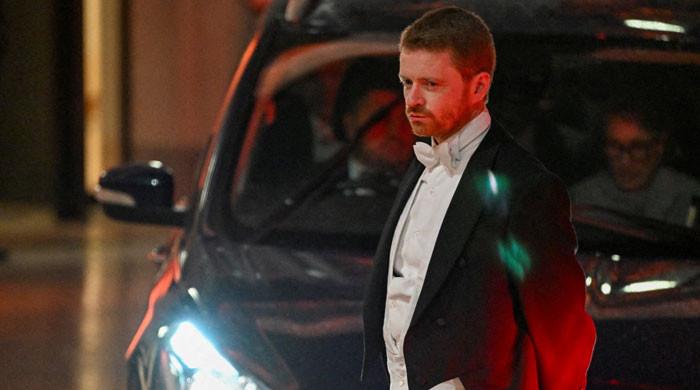
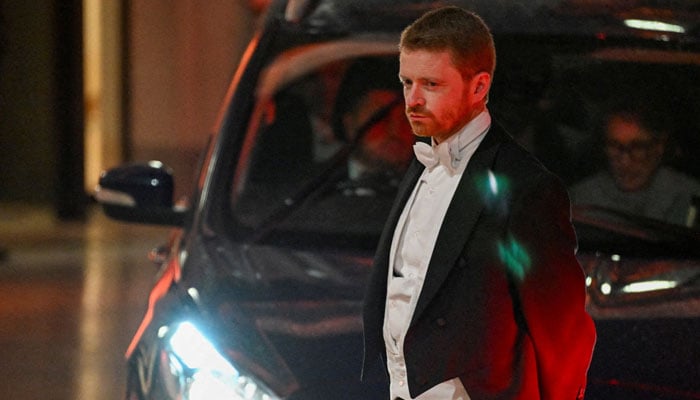
- Mandelson damaged party and trust in politics: McSweeney.
- Says “decision to appoint Peter Mandelson was wrong”.
- His resignation comes as ministry reviews Mandelson exit payment.
LONDON: Embattled British Prime Minister Keir Starmer’s chief of staff resigned on Sunday over the appointment of Peter Mandelson as ambassador to Washington despite links to US convicted sex offender Jeffrey Epstein.
“After careful reflection, I have decided to resign from the government. The decision to appoint Peter Mandelson was wrong. He has damaged our party, our country and trust in politics itself,” Morgan McSweeney, Downing Street’s chief of staff, said in a statement.
“I advised the Prime Minister to make that appointment and I take full responsibility for that advice,” he added.
The 48-year-old Irishman always maintained a low profile but was dubbed by some as the “most powerful man in politics” having played a key role in Starmer’s emphatic election victory in July 2024.
He is credited with helping to move the Labour Party towards a more centrist policy agenda following leftist ex-leader Jeremy Corbyn’s ill-fated tenure.
He was also said to have been close to Mandelson who previously helped ex-prime minister Tony Blair transform the party and its fortunes in the late 1980s and early 1990s.
The resignation came as the foreign ministry said it was reviewing an exit payment to Mandelson, who was sacked by Starmer last September over his friendship with Epstein.
Mandelson, a pivotal figure in British politics and the Labour Party for decades, received an estimated pay-out of between $52,000 to $74,000 after only seven months in the job, according to a report in the Sunday Times.
Documents released on January 30 by the US Justice Department appear to show that Mandelson allegedly leaked confidential UK government information to financier Epstein when he was a British minister, including during the 2008 financial crisis.
The revelation has placed intense pressure on Starmer and triggered a police investigation into Mandelson, 72, for alleged misconduct in a public office.
The Foreign Office said in a statement it had launched a review into Mandelson’s severance payment “in light of further information that has now been revealed and the ongoing police investigation”.
Cabinet minister Pat McFadden earlier insisted Starmer should remain in office despite his “terrible mistake” in appointing Mandelson.
He said the real blame lay “squarely” with Mandelson for putting himself forward for the job despite knowing the extent of his relationship with Epstein.
‘Regrets’
Starmer’s deputy, David Lammy, became the first cabinet minister to appear to distance himself from the premier, according to a report in the Sunday Telegraph.
The deputy prime minister had not been in favour of appointing Mandelson due to his known links to Epstein, the report quoted friends of Lammy as saying.
Starmer’s Labour Party took power just over 18 months ago in a landslide election victory.
But it has been trailing Nigel Farage’s anti-immigrant Reform UK as the government has come under fire over immigration, economic growth and the cost of living crisis.
Reform UK has led by double-digit figures in the polls for the past year.
Mandelson, also a former European Union trade commissioner, stood down from parliament’s unelected upper chamber, the House of Lords, earlier this week.
The ex-envoy was one of numerous prominent figures further embarrassed by last week’s latest revelations of ties to financier Epstein, who died in jail in 2019 while facing charges of alleged sex trafficking.
US officials ruled Epstein’s death a suicide.
A spokesperson for law firm Mishcon de Reya, representing Mandelson, said he “regrets, and will regret until to his dying day, that he believed Epstein’s lies about his criminality”.
“Lord Mandelson did not discover the truth about Epstein until after his death in 2019. He is profoundly sorry that powerless and vulnerable women and girls were not given the protection they deserved,” the law firm said.
Starmer paid tribute to McSweeney in a statement. It was “largely thanks to his dedication, loyalty and leadership that we won a landslide majority”, he said.
“Our party and I owe him a debt of gratitude,” he added.
Politics
French police arrest six over crypto-linked magistrate kidnapping
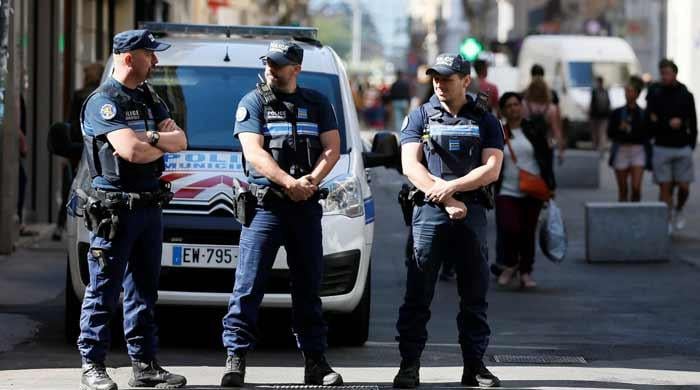
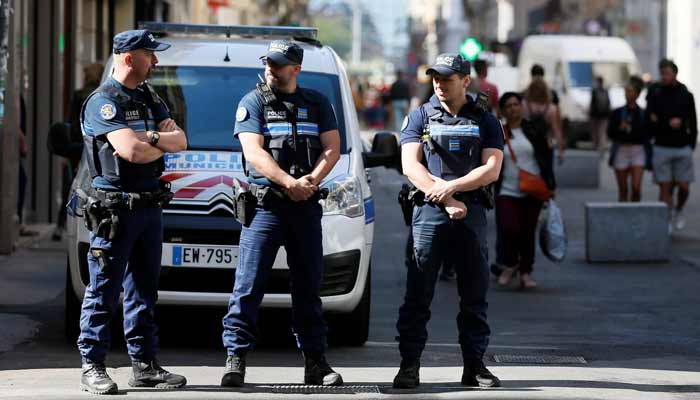
French authorities have arrested six suspects, including a minor, after a magistrate and her mother were held captive last week for around 30 hours in a cryptocurrency ransom plot, prosecutors said on Sunday.
Four men and one woman were detained, three overnight and two on Sunday morning, Lyon prosecutor Thierry Dran told AFP. He later confirmed a minor had been arrested on Sunday afternoon.
The individuals were taken into custody following the discovery of the 35-year-old magistrate and her 67-year-old mother on Friday morning, found injured in a garage in the southeastern Drome region.
Two of those arrested overnight were detained as they attempted to take a bus to Spain, according to a source close to the case speaking on condition of anonymity.
Authorities continue to actively search for further suspects, a second source close to the case said, adding that the woman in custody is the partner of one of the four male suspects.
During a press conference on Friday after the pair’s escape, prosecutor Dran said the magistrate’s partner — who was not home when the two victims were abducted overnight Wednesday to Thursday — has a leading position in a cryptocurrency start-up.
A massive police search involving 160 officers was launched after the magistrate’s partner had received a message and a photo of her from the kidnappers demanding a ransom to be paid in cryptocurrency.
The captors threatened to mutilate the victims if the transfer was not made quickly, Dran told reporters, declining to specify the amount demanded.
But the two women managed to free themselves and call for help without any ransom being paid, by banging on the garage door in Bourg-les-Valence.
“Alerted by the noise, a neighbour intervened. He was able to open the door and allow our two victims to escape,” Dran said.
Crypto-linked kidnappings
French authorities have been dealing with a string of kidnappings and extortion attempts targeting the families of wealthy individuals dealing in cryptocurrencies.
In January 2025, kidnappers seized French crypto boss David Balland and his partner. Balland co-founded a crypto firm called Ledger, valued at the time at more than $1 billion.
Balland’s kidnappers cut off his finger and demanded a hefty ransom. He was freed the next day, and his girlfriend was found tied up in the boot of a car outside Paris.
In May, the father of a man who ran a Malta-based cryptocurrency company was kidnapped by four hooded men in Paris.
The victim, whose finger was also severed by the kidnappers and for whom a ransom of several million euros was demanded, was released 58 hours later in a raid by the security forces.
Politics
Japan’s ‘Iron Lady’ Takaichi forges stunning election win
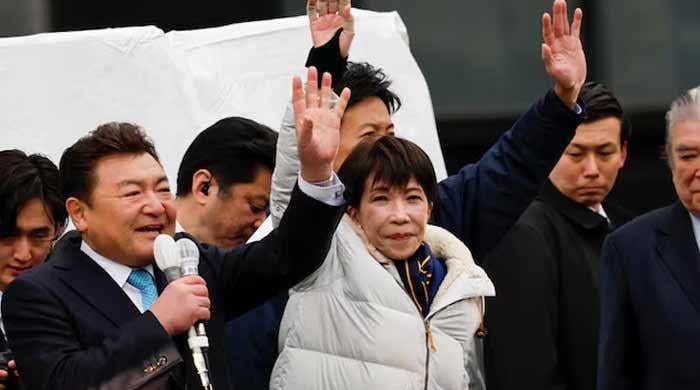
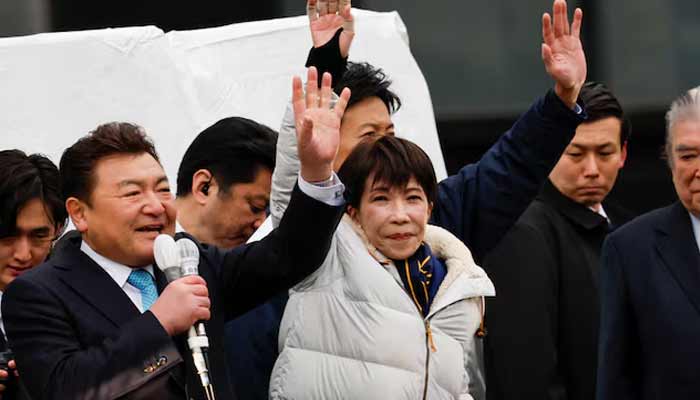
Japanese Prime Minister Sanae Takaichi’s coalition swept to a historic election win on Sunday, paving the way for promised tax cuts that have spooked financial markets.
The conservative Takaichi, Japan’s first female leader who says she is inspired by Britain’s “Iron Lady” Margaret Thatcher, was projected to deliver as many as 328 of the 465 seats in parliament’s lower house for her Liberal Democratic Party.
The LDP alone sailed past the 233 seats needed for a majority less than two hours after polls closed, on track for one of its best ever election results.
With her coalition partner, the Japan Innovation Party, known as Ishin, Takaichi now has a supermajority of two-thirds of seats, easing her legislative agenda as she can override the upper chamber, which she does not control.
Winter election brings blizzard of votes
“This election involved major policy shifts — particularly a major shift in economic and fiscal policy, as well as strengthening security policy,” Takaichi said in a television interview as the results rolled in.
“These are policies that have drawn a great deal of opposition […] If we have received the public’s support, then we truly must tackle these issues with all our strength.”
Takaichi, 64, called the rare winter snap election to capitalise on her buoyant personal approval ratings since she was elevated to lead the long-ruling LDP late last year.
Residents trudged through snow to cast their ballots with record snowfall in some parts snarling traffic and requiring some polling stations to close early. It was only the third postwar election held in February, with elections typically called during milder months.
Outside a polling station in the town of Uonuma in the mountainous Niigata prefecture, teacher Kazushige Cho, 54, braved below-freezing temperatures and deep snow to cast his vote for Takaichi’s Liberal Democratic Party.
“It feels like she’s creating a sense of direction — like the whole country is pulling together and moving forward,” Cho said.
But Takaichi’s election promise to suspend an 8% sales tax on food to help households cope with rising prices has rattled investors concerned about how the nation with the heaviest debt burden among advanced economies will fund the plan.
Takaichi said on Sunday she would speed up consideration of the sales tax cut while focusing on fiscal sustainability.
“Her plans for the cut in the consumption tax leave open big question marks about funding and how she’s going to go about making the arithmetic add up,” said Chris Scicluna, head of research at Daiwa Capital Markets Europe in London.
Taiwan President Lai Ching-te was one of the first foreign leaders to congratulate Takaichi, saying he hoped her victory would “bring a more prosperous and secure future for Japan and its partners in the region”.
Takaichi’s strong mandate could accelerate her plans to bolster Japan’s defences, further angering Beijing, which has cast her as attempting to revive its militaristic past.
Japan’s Defense Minister Shinjiro Koizumi told TV stations on Sunday evening that he wanted to push ahead with policies to strengthen Japan’s defence.
-

 Tech6 days ago
Tech6 days agoHow to Watch the 2026 Winter Olympics
-
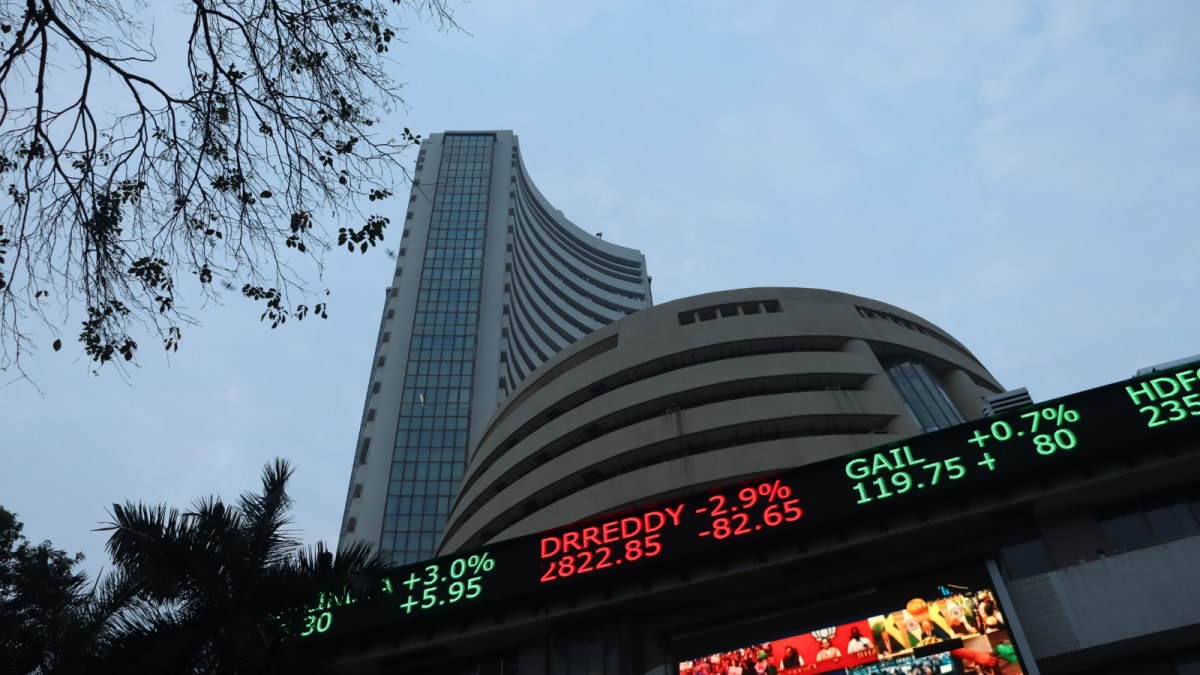
 Business6 days ago
Business6 days agoPost-Budget Session: Bulls Push Sensex Up By Over 900 Points, Nifty Reclaims 25,000
-

 Tech1 week ago
Tech1 week agoRight-Wing Gun Enthusiasts and Extremists Are Working Overtime to Justify Alex Pretti’s Killing
-

 Fashion6 days ago
Fashion6 days agoCanada could lift GDP 7% by easing internal trade barriers
-

 Tech1 week ago
Tech1 week agoI Tested 10 Popular Date-Night Boxes With My Hinge Dates
-

 Entertainment6 days ago
Entertainment6 days agoThe Traitors’ winner Rachel Duffy breaks heart with touching tribute to mum Anne
-

 Business1 week ago
Business1 week agoVideo: Who Is Trump’s New Fed Chair Pick?
-

 Entertainment2 days ago
Entertainment2 days agoHow a factory error in China created a viral “crying horse” Lunar New Year trend






